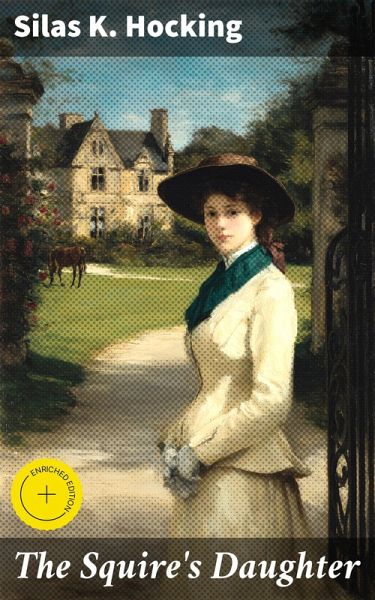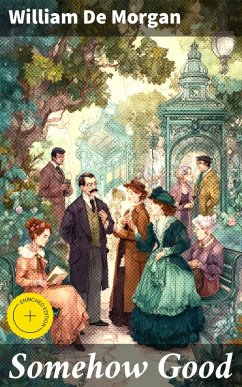
The Squire's Daughter (eBook, ePUB)
Enriched edition. Love, Duty, and Society: A Victorian Tale of Family and Romance
Kommentar: Bradford, Caleb / Redaktion: Good Press

PAYBACK Punkte
0 °P sammeln!
In "The Squire's Daughter," Silas K. Hocking skillfully intertwines romance, social commentary, and the complexities of human relationships within the backdrop of rural England. The narrative follows the titular character, whose life oscillates between the expectations imposed by her aristocratic lineage and her quest for personal agency. Hocking's prose is imbued with a rich, pastoral quality, deftly capturing the nuances of Victorian society and the constraints placed upon women. This novel stands as a poignant exploration of themes such as class disparity, love, and identity, echoing the li...
In "The Squire's Daughter," Silas K. Hocking skillfully intertwines romance, social commentary, and the complexities of human relationships within the backdrop of rural England. The narrative follows the titular character, whose life oscillates between the expectations imposed by her aristocratic lineage and her quest for personal agency. Hocking's prose is imbued with a rich, pastoral quality, deftly capturing the nuances of Victorian society and the constraints placed upon women. This novel stands as a poignant exploration of themes such as class disparity, love, and identity, echoing the literary traditions of contemporaries like Thomas Hardy and George Eliot, while also innovatively paving the way for future narratives focusing on women's autonomy. Silas K. Hocking was a prominent figure in late 19th-century literature, often influenced by his own experiences as a minister and an observer of social issues. His upbringing in a modest yet literate family instilled in him a deep appreciation for the struggles of the less fortunate, likely compelling him to address themes of class and morality within his works. Hocking's background and keen insights into the human condition galvanize the emotionally charged world depicted in "The Squire's Daughter." Readers seeking a compelling blend of romance and social critique will find "The Squire's Daughter" to be an essential addition to their literary repertoire. Hocking's masterful storytelling, combined with his empathetic character development, invites readers to reflect on the intricate dance between societal norms and personal desires. This novel not only entertains but also challenges the reader to confront the enduring issues of class and gender dynamics. In this enriched edition, we have carefully created added value for your reading experience: - A succinct Introduction situates the work's timeless appeal and themes. - The Synopsis outlines the central plot, highlighting key developments without spoiling critical twists. - A detailed Historical Context immerses you in the era's events and influences that shaped the writing. - A thorough Analysis dissects symbols, motifs, and character arcs to unearth underlying meanings. - Reflection questions prompt you to engage personally with the work's messages, connecting them to modern life. - Hand-picked Memorable Quotes shine a spotlight on moments of literary brilliance. - Interactive footnotes clarify unusual references, historical allusions, and archaic phrases for an effortless, more informed read.
Dieser Download kann aus rechtlichen Gründen nur mit Rechnungsadresse in A, B, BG, CY, CZ, D, DK, EW, E, FIN, F, GR, H, IRL, I, LT, L, LR, M, NL, PL, P, R, S, SLO, SK ausgeliefert werden.













